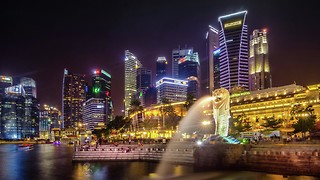New Cambridge Writers
Judith E. Wilson Drama Studio, Saturday October 24th
We were sat there inside a big black cube which dominates the English Faculty basement. It was a Saturday night. This term’s New Cambridge Writers event drew excitably towards its close. Putting a small, gifted and largely female group of student writers on view, the evening stood as further evidence that the Judith E. Wilson is a truly terrific venue. Situated directly beneath the library and lecture theatres on the ground floor, the studio hosts and enables more informal and zany occasions for us to let off our literary steam. It’s nice to imagine the disapproval of certain dons, their research interrupted by snatches of poetry and song echoing sporadically from the floor below.
Although attending New Cambridge Writers was, admittedly, a fairly civilised experience, its complimentary wine and biscuits were counterpointed by the gusto and immediacy of many readings. Poems from Richard Osmond and Laura Kilbride bookended the proceedings, and stood out as visceral, self-consciously perfomative pieces. Osmond prefaced each poem with witty and inclusive anecdotes, rationalising his inspirations (Japanese food and a particularly extortionate type of coffee machine) before dramatising them with clarity and concentration.
The final poet to read, Kilbride voiced her work with an endearingly nervous energy. Her sequence of nine fourteen-line poems was performed using various hand gestures, along with decisive changes in tone which resolved themselves in something close to rapping. Kilbride threw words as though weapons at her audience, forcing us to press up against their meanings and sounds.
Yet the evening’s quieter poets (Alice Malin, Julia Rampen, Annie Katchinska and erstwhile Varsity critic Colette Sensier) also held the audience’s attention. Their writing shared an emphasis on personal memory, and exhibited a shy ambition to communicate painful truths. Amidst the more direct observations in Sensier’s brief but memorable poem ‘Holocaust’, the line “hanging like half a story from your grandmother’s sleeve” emerged. Deft and electric, lines like these would crop up throughout the evening, with the power to surprise.
But what was good about New Cambridge Writers also has its logical conclusion in a trickier question: why are such events so hard to come by? Whilst no one would deny that it takes guts to share and broadcast your writing, the evening demonstarted some of the pleasures in doing so.
When Trevor Joyce, this year’s Judith E. Wilson poetry fellow, made a short speech he focused on ‘organisation’, and the need to make the most out of all things literary. Cambridge is a small town where word travels fast. So let’s have more words, travelling faster and in interesting directions.
 News / Council rejects Wolfson’s planned expansion28 August 2025
News / Council rejects Wolfson’s planned expansion28 August 2025 News / Tompkins Table 2025: Trinity widens gap on Christ’s19 August 2025
News / Tompkins Table 2025: Trinity widens gap on Christ’s19 August 2025 News / ‘Out of the Ordinary’ festival takes over Cambridge 26 August 2025
News / ‘Out of the Ordinary’ festival takes over Cambridge 26 August 2025 Comment / My problem with the year abroad29 August 2025
Comment / My problem with the year abroad29 August 2025 Sport / Return to your childhood sport! 29 August 2025
Sport / Return to your childhood sport! 29 August 2025









